
Benedikt Szabo from the Professorship for Biomedical Microtechnology wins a prize in the student competition

Benedikt Szabo from the Professorship for Biomedical Microtechnology wins a prize in the student competition

The German Research Foundation approves new interdisciplinary research unit

The German Research Foundation is funding microscopic studies on the influence of particulate matter

Federal Ministry of Education and Research funds junior research group of Dorothea Helmer with 1.9 million euros

Frederik Kotz awarded the Gips-Schüle Prize for Junior Researchers for his newly developed method of shaping glass

Lars Pastewka is optimizing a type of what is known as contact electricity, or the triboelectric effect
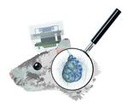
Interdisciplinary team of scientists from the University Medical Center Göttingen and the Department of Microsystems Engineering of the University of Freiburg generate for the first time light-controlled behaviour in deaf rodents using optical cochlear implants based on light-emitting diodes. Published in Science Translational Medicine.
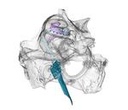
A milestone in hearing research: Researchers at the University Medical Center Göttingen and the University of Freiburg combine for the first time gene therapy in the cochlea with optical cochlear implants to optogenetically activate the auditory pathway in gerbils. Published in EMBO Molecular Medicine
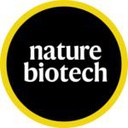
Recent News article in Nature Biotechnology highlights two different research activities of Dr. Can Dincer.

The University of Freiburg honors Maria Asplund with 2020 Bertha Ottenstein Award

Researchers receive four million euros to develop a neuroprosthetic implant to improve vision

A new method promises gentler, more effective dental treatment (Video)

In a new series of video podcasts Freiburg researchers offer their perspectives on the effects of the pandemic. Here are the contributions of the Faculty of Technology with its three departments.

Hans Zappe is developing an automatic, autonomous microcamera with chemical “muscles” which could be used in endoscopes and other applications

Freiburg project on battery research funded by the BMBF “World Storage” program

Intelligent Aircraft Wings Could Save Fuel Chris Eberl develops unit cells – these miniature building blocks give materials special capabilities

Joint activity between University College Freiburg and IMTEK – connecting technology and its reception in society

Joint research group of the University of Freiburg’s Department of Microsystems Engineering and the Humboldt University Berlin receives Helmholtz Prize

As early as late summer, Spindiag, a spin-off of the University of Freiburg, plans to launch a rapid test for coronavirus onto the market
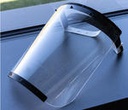
The Faculty of Engineering with the Department of Microsystems Engineering is participating in an initiative that produces face shields for medical professionals.
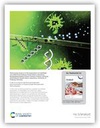
Research article of the Laboratory for Sensors on the back cover of the new Analyst issue: A lab-on-a-chip for free-flow electrophoretic preconcentration of viruses and gel electrophoretic DNA extraction

The University will be fully operational May 11 through July 31, 2020

Information for students, staff members, first semester students

Microsystems engineers receive EXIST Transfer of Research aid to further develop adaptive optics

Freiburg researcher investigate the origins of surface texture

The Vector Foundation sponsors Severin Vierrath’s research into a greenhouse gas reduction technology

Can Dincer has developed a method for detecting molecules that are markers of disease in exhaled breath

Facing the challenge: from fundeamental research to clinical trials

This recognizes his contributions to the design of integrated analog-to-digital interface circuits and energy harvesting systems.

Frohe Weihnachten Feliz Navidad Joyeux Noël Merry Christmas Buon Natale Schöni Wiehnacht Счастли́вого Рождества́ عِيدُ مِيلادٍ مَجِيد Boas Festas Весела Коледа 圣诞快乐 Sretan Bozic Veselé Vánoce Glædelig jul Zalig Kerstfeest Hyvää Joulua καλά Χριστούγεννα חג מולד שמח शुभ क्रिस्मस Kellemes karácsonyi ünnepeket Gleðileg jól Selamat Hari Natal クリスマスおめでとう
Document Actions